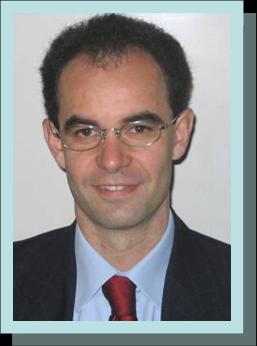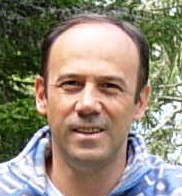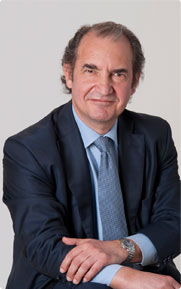Studying at the University of Verona
Here you can find information on the organisational aspects of the Programme, lecture timetables, learning activities and useful contact details for your time at the University, from enrolment to graduation.
Academic calendar
The academic calendar shows the deadlines and scheduled events that are relevant to students, teaching and technical-administrative staff of the University. Public holidays and University closures are also indicated. The academic year normally begins on 1 October each year and ends on 30 September of the following year.
Course calendar
The Academic Calendar sets out the degree programme lecture and exam timetables, as well as the relevant university closure dates..
| Period | From | To |
|---|---|---|
| primo semestre | Sep 23, 2013 | Jan 10, 2014 |
| secondo semestre | Feb 17, 2014 | May 30, 2014 |
| Session | From | To |
|---|---|---|
| Sessione Prove Parziali - Primo Semestre | Nov 11, 2013 | Nov 15, 2013 |
| Sessione Invernale Esami | Jan 13, 2014 | Feb 15, 2014 |
| Sessione Prove Parziali - Secondo semestre | Apr 14, 2014 | Apr 18, 2014 |
| Sessione Estiva esami | Jun 3, 2014 | Jul 12, 2014 |
| Sessione Autunnale Esami | Aug 25, 2014 | Sep 10, 2014 |
| Session | From | To |
|---|---|---|
| Sessione di Lauree - Novembre | Nov 7, 2013 | Nov 8, 2013 |
| Sessione di Lauree - Aprile - Vicenza | Apr 11, 2014 | Apr 11, 2014 |
| Sessione di Lauree - Settembre | Sep 11, 2014 | Sep 12, 2014 |
| Period | From | To |
|---|---|---|
| Vacanze Natalizie | Dec 23, 2013 | Jan 4, 2014 |
| Vacanze Estive | Aug 11, 2014 | Aug 23, 2014 |
Exam calendar
Exam dates and rounds are managed by the relevant Economics Teaching and Student Services Unit.
To view all the exam sessions available, please use the Exam dashboard on ESSE3.
If you forgot your login details or have problems logging in, please contact the relevant IT HelpDesk, or check the login details recovery web page.
Academic staff
 giovanna.caramia@univr.it
giovanna.caramia@univr.it
 roberto.fini@univr.it
roberto.fini@univr.it
 tamara.fioroni@univr.it
tamara.fioroni@univr.it
 eulogeclovis.kennepagui@univr.it
eulogeclovis.kennepagui@univr.it

Lionzo Andrea
 andrea.lionzo@univr.it
andrea.lionzo@univr.it

Peluso Eugenio
 eugenio.peluso@univr.it
eugenio.peluso@univr.it
 045 8028104
045 8028104
 francesca.rossignoli@univr.it
francesca.rossignoli@univr.it
 0444 393941 (Ufficio Vicenza) 0458028261 (Ufficio Verona)
0444 393941 (Ufficio Vicenza) 0458028261 (Ufficio Verona)
 giuseppe.trabucchi@univr.it
giuseppe.trabucchi@univr.it
Study Plan
The Study Plan includes all modules, teaching and learning activities that each student will need to undertake during their time at the University.
Please select your Study Plan based on your enrollment year.
1° Year
| Modules | Credits | TAF | SSD |
|---|
2° Year activated in the A.Y. 2014/2015
| Modules | Credits | TAF | SSD |
|---|
3° Year activated in the A.Y. 2015/2016
| Modules | Credits | TAF | SSD |
|---|
| Modules | Credits | TAF | SSD |
|---|
| Modules | Credits | TAF | SSD |
|---|
| Modules | Credits | TAF | SSD |
|---|
| Modules | Credits | TAF | SSD |
|---|
Legend | Type of training activity (TTA)
TAF (Type of Educational Activity) All courses and activities are classified into different types of educational activities, indicated by a letter.
Financial markets and Institutions (2015/2016)
Teaching code
4S00429
Academic staff
Coordinator
Credits
9
Language
Italian
Scientific Disciplinary Sector (SSD)
SECS-P/11 - FINANCIAL MARKETS AND INSTITUTIONS
Period
primo semestre dal Sep 14, 2015 al Jan 8, 2016.
Learning outcomes
The course provides a fundamental knowledge of Financial intermediation. The aim of this course is to provide students with both concepts and methodologies useful to analyse the role and the dynamics of the financial system. During the course, the technical features of financial instruments, the structure of the financial system, with particular attention paid to the different functions performed by financial institutions and financial markets, the normative context and monetary policy will be analysed.
Lectures may be integrated with experts’ insights on specific topics.
Program
1. Structure and functions of the financial system
2. Financial instruments: bonds, stocks and derivatives
3. Financial markets
4. Financial institutions: banks, securities intermediaries and insurance companies
5. Regulation and supervision of the financial system
6. Monetary policy
FERRARI A, GUALANDRI E., LANDI A., VEZZANI P., Il sistema finanziario: funzioni mercati e intermediari, IV edizione, Giappichelli, 2012. Sarà inoltre disponibile un aggiornamento on line sulla piattaforme dell'editore.
MUNARI L. (a cura di), Strumenti finanziari e creditizi, McGraw-Hill, 2015: cap. 1, 2, 6, 7, 8, 9, 10, 17, 18.
Further readings on specific topics will be made available on the e-learning page for the course.
Textbooks and further readings are consistent with the syllabus.
Examination Methods
Written test
Type D and Type F activities
Modules not yet included
Career prospects
Module/Programme news
News for students
There you will find information, resources and services useful during your time at the University (Student’s exam record, your study plan on ESSE3, Distance Learning courses, university email account, office forms, administrative procedures, etc.). You can log into MyUnivr with your GIA login details: only in this way will you be able to receive notification of all the notices from your teachers and your secretariat via email and soon also via the Univr app.





















